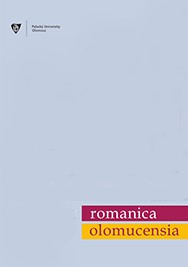Literatura afro-brasileira: memória e identidade no conto «Olhos d’água» de Conceiçao Evaristo
Afro-Brazilian literature: memory and identity in the tale «Olhos d´água» by Conceiçao Evaristo
Author(s): Andreine Lizandra dos SantosSubject(s): Studies of Literature
Published by: Univerzita Palackého v Olomouci
Keywords: Conceiçao Evaristo; Afro-Brazilian literature; memory; identity;
Summary/Abstract: This article briefly analyses the short story by Conceiçao Evaristo entitled "Olhos d´água" (Eyes of water) (2014), from the perspective of memory and identity. Memory and identity are inseparable, the first representing the ability to preserve certain information and identity, characteristics that allow people or things to be individualized. Thus, memory brings together the processes of identity, allowing the construction of the past and its re-signification. To do so, the theoretical considerations of scholars such as Duarte, Hall, Hutcheon, Candido, and other authors are used. Regarding the analyses, it is important to note that the short story is part of Afro-Brazilian literature and that it considers aspects such as issues of race, sexuality, and social inequality. In addition, memory and identity the representation of the black population through the stereotypes that are presented being questioned. In this way, memory becomes a source capable of weaving narrative threads, which in turn will bring back memories of the past, enabling the construction of an identity that circulates among the characters involved in the narrative. It is important to find matrices that lead to an apparent origin of a past that was previously erased, in order to feel that it belongs to history and not only be in the world, but in its rightful place.
Journal: Romanica Olomucensia
- Issue Year: 33/2021
- Issue No: 2
- Page Range: 305-314
- Page Count: 10
- Language: Portuguese

